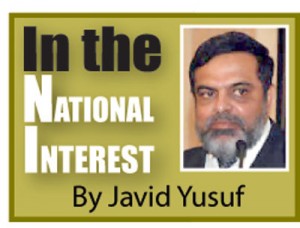News
Salary increase for MPs – the why and the how
Recent media reports that salaries and other emoluments of MPs are to be increased, drew strong criticism from various quarters, and the move has now, apparently, been shelved.
These reports do not make it clear whether it was only a discussion at a meeting of party leaders in Parliament or, whether it was a recommendation of the Party Leaders. Nor was it clear what the reason was for such a suggestion to be made.
That the timing of such a proposal was bad goes without saying. But the fact that the discussion or recommendation was leaked to the media only two weeks after the Party Leaders met suggests that whoever did so had a collateral purpose for leaking the information.
Now that the issue has died down it is worth examining the pros and cons of such a move and the impact it has on the work of Parliamentarians. With a request for salary increases from almost every section of the working class being articulated every other day, no one will grudge our legislators an enhancement of their emoluments within reasonable limits and subject to the economic constraints faced by the Government.
There may have been two factors that worked in the minds of the public who expressed their outrage at such a move. The first was the fact that the legislators themselves were deciding on their own salary increases. Such a move in the best of situations is not likely to be looked on with much favour, however reasonable such a move may be, even if looked at objectively.
The second reason for the public outcry may have been the perception that our legislators are not performing up to expectations. The experience of the past week where Parliament had to adjourn without a quorum on three successive days lends credence to such a belief.
The primary role of a Parliamentarian is to be part of the legislative process. His or her absence during the sittings of Parliament and the failure to participate adequately and productively in the debates in Parliament means that he or she is not fulfilling his or her role as a legislator.
Speaker Karu Jayasuriya at a meeting with media personnel on Friday deplored the poor attendance among Members of Parliament and said that the high rate of absenteeism was a cause of concern to him.
Notwithstanding such concerns however there is a strong case for reasonable remuneration to be paid to Members of Parliament and even more so for Ministers. In the Sri Lankan context Parliamentarians are called upon to attend funerals, weddings and other social events where they often have to make a monetary contribution.
However it is also to be noted that Parliamentarians are free to engage in business or their profession and therefore are able to supplement their remuneration through other legitimate means.
In the case of Ministers and State and Deputy Ministers, however, they are not permitted to do so and are required to spend their entire time and effort on their Ministerial duties. They are in fact responsible for running the country and their emoluments must be commensurate with such responsibilities.
However in recent times the composition of the Cabinet is far too big and needs to be reduced. With a substantial portion of the workload at Cabinet level in the pre 1987 years now devolved to the Provincial Council , there is no real justification for such Jumbo cabinets. Thus a reduction of the number of Ministers will also offset any increase in the amount required to meet the additional costs of increasing the remuneration of Ministers.
An additional advantage of a reduction in the number of Ministers is that the President and Prime Minister can have a better control of their team. Today the number of Ministers is so large that each of them speak as individuals and are often at variance with each other as well as in breach of the principle of collective responsibility.
Some of them are on a journey of their own and have even misunderstood their role as Minister or Deputy Ministers. The over enthusiastic Deputy Minister of Wildlife and Sustainable Development Palitha Thevarapperuma involves himself in undercover operations on a regular basis. One wonders whether this is within the remit of a person holding such a position.
Any revision of the salaries and other emoluments of legislators must be through a mechanism independent of the Parliamentarians and be based on clearly laid down criteria which are rational and justifiable. For instance there is no justification for an MP of the Colombo District being paid the same travel allowance as one from the Digamadulla District or the Moneragala District.
Another reason why a Parliamentarian’s salary should be increased is that there may be some who actually need adequate remuneration. The UPFA Parliamentarian from Digamadulla Wimalaweera Dissanayake gave expression to the plight of such Parliamentarians when he said that only those who had private means or were corrupt would not ask for increased remuneration.
There may be other Parliamentarians who are reluctant to publicly articulate such a need due to personal embarrassment
Attention must also be paid to the remuneration of members of the Provincial Councils and Local Government bodies and a similar process must be followed in respect of their emoluments as well.
If this is not done the weaker elements among Legislators and Councillors may fall prey to the temptations of illicit earnings and justify it on the basis of inadequate compensation.
At the same time steps must be taken to ensure that Parliamentarians play a more effective role in the legislative process and be made continuously accountable to the people.
(javidyusuf@gmail.com)

